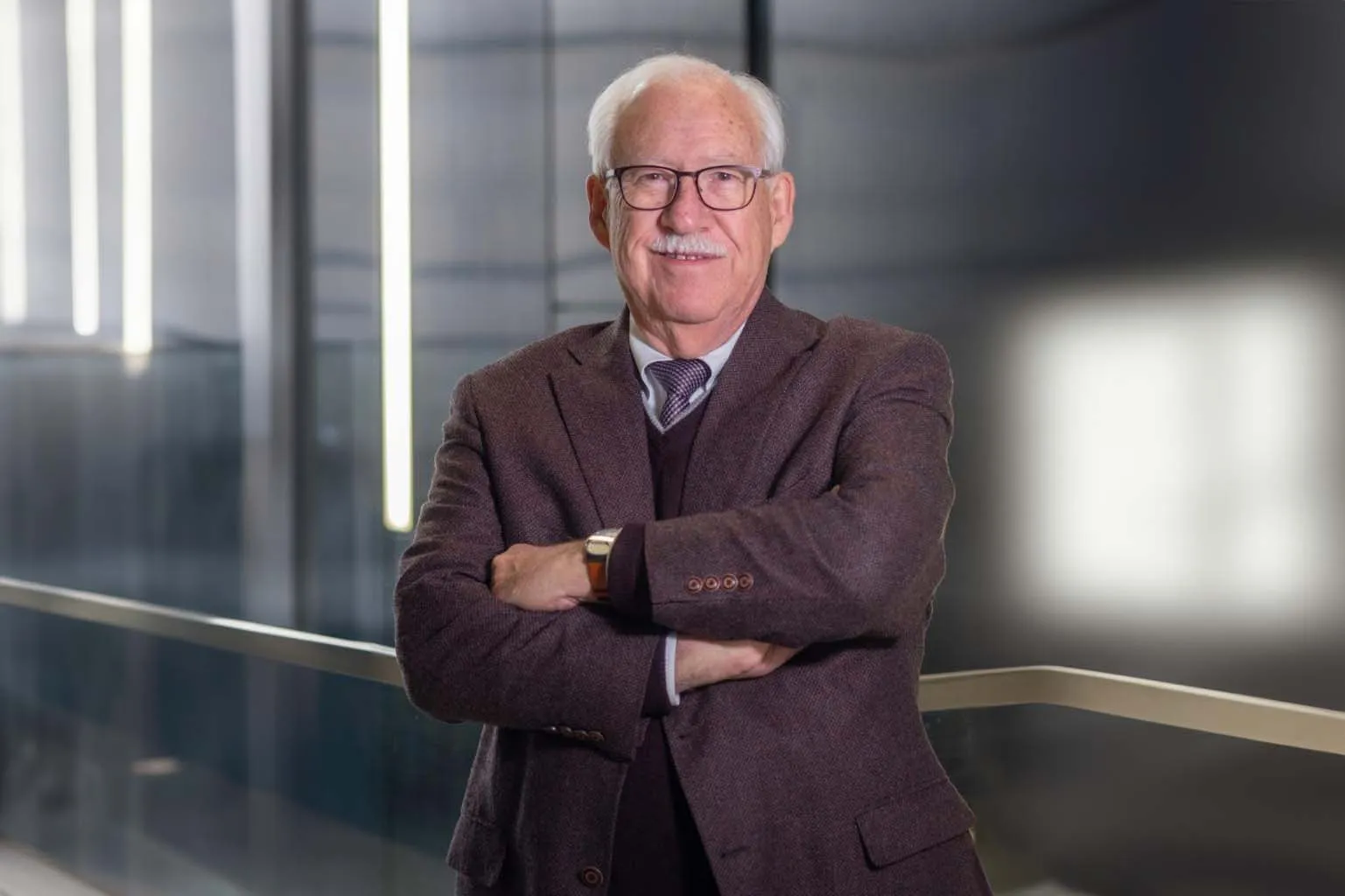
Leaders are often called upon to do great things and after a career of service at Michigan State University, Walt Esselman still isn’t finished.
His newest responsibilities include enhancing synergy among health sciences researchers, connecting existing areas of research excellence and creating new opportunities. He continues to lead the research endeavor associated with the Henry Ford Health + Michigan State University Health Sciences partnership after he spearheaded the integration of these two institutions.
“I have always worked for the advancement of science at our institution, and I see the partnership with Henry Ford to be a major move for expanding MSU in the area of medical research,” Esselman said.
As he embraces the role of assistant vice president for research integration, Esselman will continue to recruit top researchers, something that he has been doing for years. He also will support the integration of the Henry Ford Health faculty, which includes facilitating compliance, research and submitting grant requests and award nominations. His office has submitted over 500 grant requests in the past year alone.
He works with the MSU Office of Health Sciences and the Office of Research and Innovation.
“Dr. Esselman promotes relationships between physicians and scientists, institutional and business leaders, and community partners,” said Norman J. Beauchamp, Jr., executive vice president for Health Sciences. “He brings outstanding leadership skills and will create great opportunities for collaborative research initiatives.”
“I’m interested in advancing people and their science,” Esselman said. “I try to lead with trust, which is important in creating opportunities for collaboration. When researchers see and hear that I’m genuinely interested in them and their work, they become more interested in our exciting opportunities.”
Throughout his career, Esselman’s recruiting campaign has taken him around the country to meet top-notch candidates, drawing on his own research experience for perspective.
“I respect all the different fields of study,” Esselman said. “We need to do great research and that requires cooperation between people who have diverse interests and talent.”
“Dr. Esselman has developed an infrastructure for research administration within health sciences that will serve as a strong foundation for aligning our research enterprise with Henry Ford Health,” said Doug Gage, vice president for Research and Innovation at MSU. “His experience and expertise will be extremely beneficial as we move into the next phase of research integration.”
Esselman most recently served as the senior associate dean for research in the College of Human Medicine where he focused on faculty recruitment and expanding research opportunities with health partners across the state. He led the creation of the Health Colleges Research Services Office, which provides pre-award grant submission services to our three health colleges, and guides faculty and staff who match medical students to faculty members for research experiences.
He also served for 10 years as the chair of the Department of Microbiology and Molecular Genetics, where he remains a professor. Under his leadership, the department recruited more than 20 faculty members in a range of disciplines, including microbial ecology, infectious diseases, genetics, immunology, virology and microbiology. During this period, the research productivity of the department more than doubled, and the department had four National Academy members.
Esselman is a key member of the Gibby and Friends vs. Parky Parkinson’s Disease Research Project Award; the Spectrum Health-MSU Alliance; and the Cancer Research Consortium of West Michigan. Additionally, he has led the MSU chairs involved in research with colleagues from Van Andel Institute, Corewell Health, Mary Free Bed Rehabilitation Hospital, Mercy Health Saint Mary’s, Grand Valley State University and the researchers and leaders in the Traverse City region.
Esselman earned a Bachelor of Science degree in chemistry at the Catholic University of America in Washington, D.C., and a Ph.D. in biochemistry from Pennsylvania State University. After post-doctoral work at MSU, he joined the faculty of the departments of Surgery and Microbiology and Molecular Genetics in the College of Human Medicine. His research endeavors have included investigating the mechanism of vascular inflammation in diabetic retinopathy, cellular signaling pathways in lymphocytes, immunology, mass spectrometry and sphingolipids.
This announcement was originally published on MSU Today.
